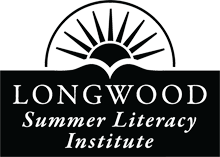Proposal Title
Concurrent Session III
Description
Sessions
"Bringing History Alive", Laura Elliot (author). Audience: Intermediate/Middle/High
- In its plotline and the challenges and moral dilemmas foisted on its protagonists, historical fiction brings bygone eras to palpable life. Readers worry about them, wonder what comes next, what kinds of choices they might make in such circumstances. L. M. Elliott will describe what types of historical details best reveal a time period and capture adolescent attention. Plus how to make research a treasure hunt of fun for students as well as evocative starting points for their own creative writing.
"Inquiry-based Learning", Stephanie Willis. Audience: Elementary
- How to use texts to create small group learning by posing problems, questions, and scenarios. This encourages open discussion and the use of analytical as well as problem-solving skills.
"Awesome and Effective Collaborations", AB Westrick (author). Audience: Intermediate/Middle/High
- Learn how the Guided Inquiry process screams, "Collaboration!" In this session, we'll go from primary sources (newspaper articles, maps, photos) into a writing exercise that brings the period of Reconstruction to life. This classroom-ready lesson is easily adaptable to other historical time periods.
"Did Socrates Get it Wrong? Making Connections through Student Questioning", Lori Donovan and Laurie Surles. Audience: All
- Experience the Question Formulation Technique (QFT), a questioning protocol where students use divergent and convergent thinking to formulate questions to guide their learning. QFT can be used in any content area and at any level to motivate and challenge students to go beyond literal knowledge.
"Rethinking PowerPoint, Something Old and Thinking New", Scott Cassell. Audience: All
- Did you know you can use PowerPoint as a means of taking notes? Learn strategies for how PowerPoint can become the basis for creating avenues of instruction and how you can teach parenthetic citations, paraphrasing, summaries, and how to use citation makers.
"Hands Down: Hands-On Interactivity", Liz Phillips and Valerie Leonard (Repeated Session 4). Audience: Middle
- Even in the Digital Age, there is a need for English language arts activities where manipulatives come in handy. Try your hand at word sorts, figurative language strips, and detective skills in both fiction and nonfiction for inclusion settings. No hands up...all hands on (with talking)!
Session 3c.7z (19695 kB)
AwesomeandEffective_Longwood Inquiry to Make Connections Digital Commons.pdf (12181 kB)
AwesomeandEffectiveCollaborations_Longwood Inquiry to Make Connections.Digital Commons.ppt (6046 kB)
Did Socrates get it wrong.pptx (1223 kB)
Did Socrates get it wrong_QFT-Small-Group-Worksheet.pdf (111 kB)
Hands Down Hands On Longwood 2014 SLI Presentation AUDIO VERSION.pptx (4882 kB)
Longwood Inquiry to Make Connections Digital Commons.ppt (6046 kB)
Location
Ruffner
Start Date
7-18-2014 1:30 PM
End Date
7-18-2014 2:30 PM
Concurrent Session III
Ruffner
Sessions
"Bringing History Alive", Laura Elliot (author). Audience: Intermediate/Middle/High
- In its plotline and the challenges and moral dilemmas foisted on its protagonists, historical fiction brings bygone eras to palpable life. Readers worry about them, wonder what comes next, what kinds of choices they might make in such circumstances. L. M. Elliott will describe what types of historical details best reveal a time period and capture adolescent attention. Plus how to make research a treasure hunt of fun for students as well as evocative starting points for their own creative writing.
"Inquiry-based Learning", Stephanie Willis. Audience: Elementary
- How to use texts to create small group learning by posing problems, questions, and scenarios. This encourages open discussion and the use of analytical as well as problem-solving skills.
"Awesome and Effective Collaborations", AB Westrick (author). Audience: Intermediate/Middle/High
- Learn how the Guided Inquiry process screams, "Collaboration!" In this session, we'll go from primary sources (newspaper articles, maps, photos) into a writing exercise that brings the period of Reconstruction to life. This classroom-ready lesson is easily adaptable to other historical time periods.
"Did Socrates Get it Wrong? Making Connections through Student Questioning", Lori Donovan and Laurie Surles. Audience: All
- Experience the Question Formulation Technique (QFT), a questioning protocol where students use divergent and convergent thinking to formulate questions to guide their learning. QFT can be used in any content area and at any level to motivate and challenge students to go beyond literal knowledge.
"Rethinking PowerPoint, Something Old and Thinking New", Scott Cassell. Audience: All
- Did you know you can use PowerPoint as a means of taking notes? Learn strategies for how PowerPoint can become the basis for creating avenues of instruction and how you can teach parenthetic citations, paraphrasing, summaries, and how to use citation makers.
"Hands Down: Hands-On Interactivity", Liz Phillips and Valerie Leonard (Repeated Session 4). Audience: Middle
- Even in the Digital Age, there is a need for English language arts activities where manipulatives come in handy. Try your hand at word sorts, figurative language strips, and detective skills in both fiction and nonfiction for inclusion settings. No hands up...all hands on (with talking)!


